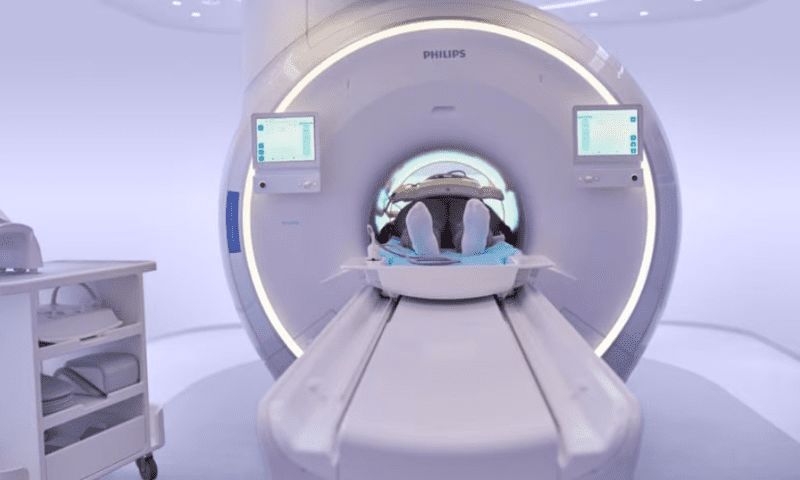Philips has received clearance from the FDA for its artificial-intelligence-powered MRI platform geared toward head and neck cancers.
Dubbed MRCAT, for MR for Calculating ATtenuation, the application allows physicians to skip CT scans and use MRI machines as the primary or only imaging modality for planning radiotherapy in soft tissue tumors of the head and neck.
The AI software—which creates images with CT-like density information derived from a single, high-resolution MR scan taking less than three minutes—can also be used to help treat cancers within the brain, pelvis and prostate by assisting with patient positioning and radiation dose calculations.
“The superior soft tissue imaging of MR together with advances in the integration and orchestration of data, including the use of artificial intelligence, promise greater clarity and less subjectivity in planning radiotherapy for head and neck cancer,” Ilya Gipp, M.D., Ph.D., Philips’ chief medical officer for oncology solutions, said in a release.
The clearance was announced during the annual meeting of the American Society for Radiation Oncology. At the same time, the company debuted the results of a partnership with patient-positioning company MacroMedics.
MacroMedics’ thermoplastic Prominent mask system—used to immobilize the patient’s head, neck and shoulders during scanning and radiation therapy—is now designed to be compatible with Philips’ dedicated MR coil for imaging the head and neck. That system is currently pending clearance from the FDA and is not yet available for sale in the U.S.

